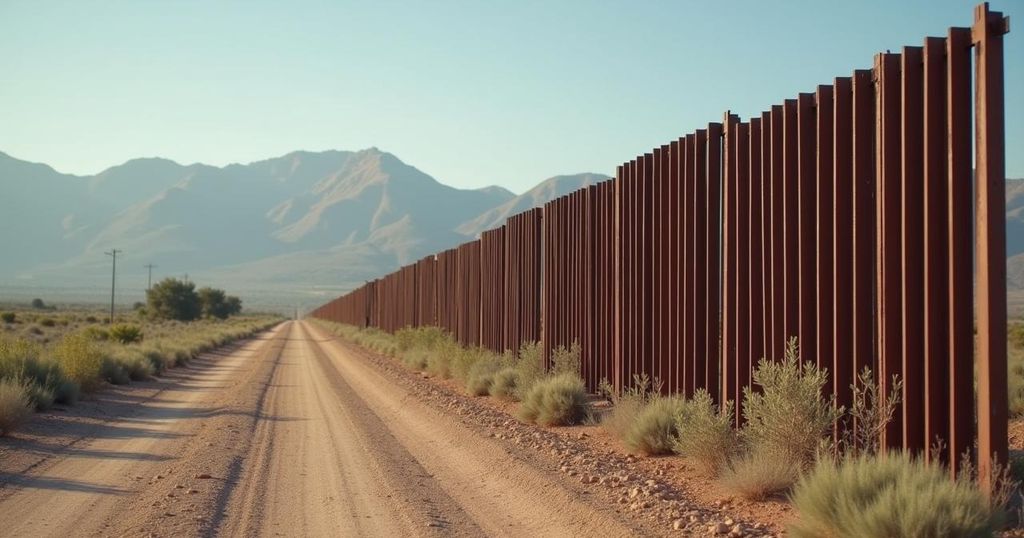As the U.S. presidential election approaches, Mexico has intensified its border enforcement, significantly reducing the number of migrants reaching the U.S. border. An unspoken agreement between the Biden administration and Mexico seeks to manage migration flows, influenced by economic interests and the political stakes of immigration during the electoral period. However, these measures have resulted in increased hardships for migrants stranded in Mexico.
As the United States presidential election approaches, Mexico has intensified its border enforcement measures, marking a significant shift in migration dynamics. This development is largely attributed to an unspoken agreement between the Biden administration and the Mexican government, aimed at managing the flow of migrants to the U.S. border. Analysts suggest that this collaboration serves Mexico’s economic interests, particularly in maintaining smooth trade relations with the U.S., which is a vital economic partner. The continuity of strict border policies is further motivated by the political implications of the upcoming U.S. election, where immigration is a contentious issue for both political parties. Under President Claudia Sheinbaum, Mexico has become a crucial ally in curbing illegal crossings. Recent data indicates a dramatic decline in the number of migrants attempting to reach the U.S. border, from nearly 250,000 in December of the previous year to under 60,000 in recent months. This has been accompanied by a noted increase in migrant apprehensions within Mexico, reflecting stringent enforcement actions taken against those attempting to transit through the country. Personal accounts from migrants themselves highlight the struggles they face due to heightened enforcement measures. Families from Venezuela, facing obstacles such as visa requirements and increased deportations, now find themselves stranded within Mexico, often residing in overcrowded and precarious conditions. The origins of this policy shift can be traced back to a series of high-stakes discussions between U.S. and Mexican officials late last year, triggered by the rapid rise in migrant encounters that posed a serious threat to the Democrats’ political landscape. Notably, Mexico’s cooperation in border control represents a necessary strategy to mitigate humanitarian crises while simultaneously addressing political vulnerabilities for the Biden administration. However, this has raised ethical concerns regarding Mexico’s treatment of migrants and its adherence to international humanitarian obligations. The Biden administration’s current approach combines enforcement with humanitarian assistance, yet concerns persist about the long-term implications of such measures for human rights and migration policy.
The article examines the evolving dynamics of U.S.-Mexico relations in the context of migration control, particularly as the U.S. elections draw near. It highlights an unwritten agreement whereby Mexico has agreed to bolster its immigration enforcement efforts to reduce the flow of migrants crossing into the U.S. This collaboration has deep economic roots, with a focus on maintaining efficient trade across the border. The political landscape in both nations, particularly regarding immigration as a focal issue among voters, adds further urgency to these measures. The article also sheds light on the individual experiences of migrants affected by these policies, revealing the human toll behind data and political decisions.
In conclusion, the current state of U.S.-Mexico relations concerning migration reflects both strategic political maneuvers and pressing humanitarian challenges. Mexico’s enhanced enforcement policies, motivated by economic and political interests, have led to a significant reduction in migrant crossings into the U.S. However, the consequences for migrants stranded in Mexico are severe, entailing dire living conditions and uncertainties about their future. As the election period unfolds, the handling of migration issues will remain a pivotal aspect of the bilateral relationship, with potential repercussions for both nations.
Original Source: www.usatoday.com






